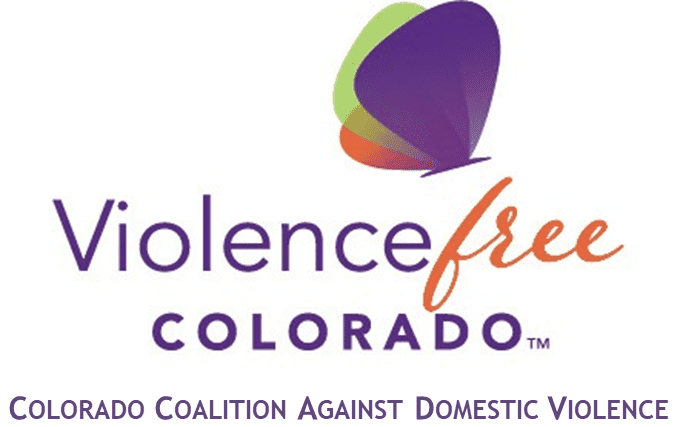by Amy Pohl
Violence Free Colorado Staff and Blogger
(highlights from a speech I gave last weekend at a fundraiser in Grand County)
I started my career advocating for survivors in a small town in Wyoming, and I really miss it sometimes. I miss pulling up to a four way stop sign and knowing every face at the other 3 points of that intersection. I miss laughing at tourists who think an elk is just a large deer. I miss hearing someone honk their horn and I don’t even look up, I just wave. I know you know some of you know what I’m talking about!
Small, close-knit, and particularly rural communities, I know, provide some of the most innovative, creative, resourceful, and holistic support and care for survivors of any communities I’ve worked in. I represented clients throughout the state of Wyoming, and no matter what town I was in, the advocates there made me feel at home. Caught me up on local gossip and funny stories. And they really KNEW their clients.
It’s really no secret why advocates in rural communities are some of the most competent I’ve worked with: they do everything. They know everyone. They tackle unique challenges that advocates in more urban setting simply don’t face from day to day. Let me give you an example. Recently I read a commentary by an advocate up in Aspen (Pitkin County) who wrote, “Imagine that this intensely personal experience of sexual assault or domestic violence becomes known to the entire community, because although the media don’t release a victim’s name, coverage often includes enough identifying information that a victim is “outed.” It’s easy to see how in small communities, confidentiality and safety are not as straight forward as in larger communities. Yet, I hear so often that these same advocates are the ones who feel most supported and protected by their communities.
The author continues that when news breaks of an incident of DV or sexual assault, most everyone will have an opinion. She writes, “When news recently broke that a sexual assault perpetrated by an unknown individual had occurred in the usually crime-free community of Snowmass, it understandably garnered tremendous media and public attention. One woman I heard discussing the incident encapsulated why I believe so many sexual-assault survivors don’t come forward.
“Didn’t her mother teach her not to walk home alone at 2 o’clock in the morning?” she said.
To which I responded, “Didn’t his mother teach him not to rape?”
When I read that, my reaction was ‘Wow.’ Thank you for just so succinctly capturing one of the most important pieces of what we at Violence Free Colorado, and those within local DV advocacy organizations, try to convey every day. And that is, “It is never the survivor’s fault. And we must hold perpetrators accountable for their choices.” We face the challenge in our work of trying to change the deeply held perceptions surrounding domestic violence. And we must overcome this challenge in order to truly ensure safety of survivors and their children.
And it is SO important that you are a part of that effort. Because it is up to us as communities to engage others in a dialogue about safety and accountability. It is up to us as community members to recognize victim safety looks and feels different for different people, and that we must support the advocates who are so important to helping survivors safety plan and access the valuable and necessary resources that they need. It is up to us as community members to recognize we are all in this together, and we have to work together towards a society that will no longer tolerate domestic violence. Together, we truly CAN make a difference, and we ARE making a difference…for survivors and for our communities.
